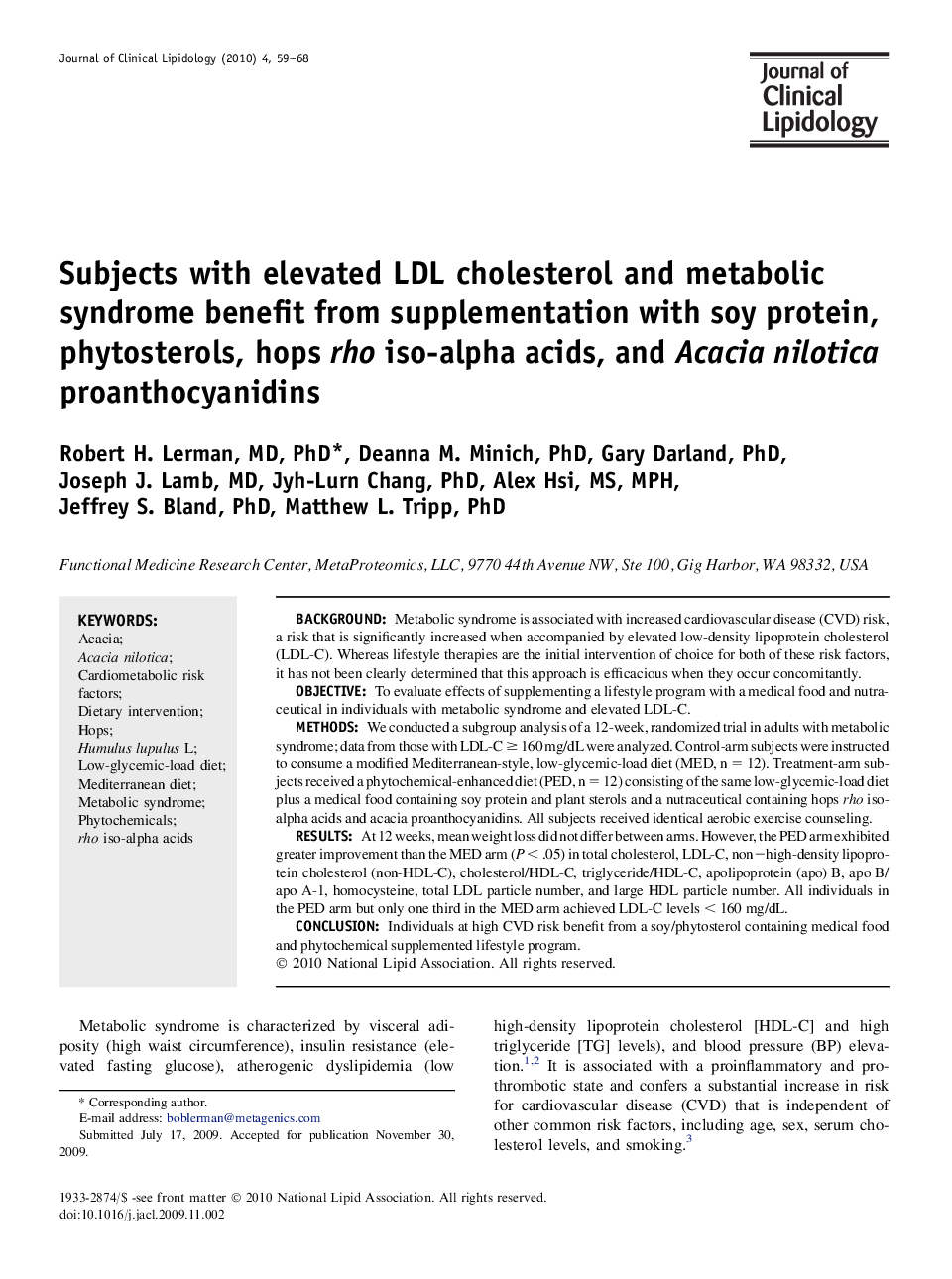| Article ID | Journal | Published Year | Pages | File Type |
|---|---|---|---|---|
| 2967149 | Journal of Clinical Lipidology | 2010 | 10 Pages |
BackgroundMetabolic syndrome is associated with increased cardiovascular disease (CVD) risk, a risk that is significantly increased when accompanied by elevated low-density lipoprotein cholesterol (LDL-C). Whereas lifestyle therapies are the initial intervention of choice for both of these risk factors, it has not been clearly determined that this approach is efficacious when they occur concomitantly.ObjectiveTo evaluate effects of supplementing a lifestyle program with a medical food and nutraceutical in individuals with metabolic syndrome and elevated LDL-C.MethodsWe conducted a subgroup analysis of a 12-week, randomized trial in adults with metabolic syndrome; data from those with LDL-C ≥ 160 mg/dL were analyzed. Control-arm subjects were instructed to consume a modified Mediterranean-style, low-glycemic-load diet (MED, n = 12). Treatment-arm subjects received a phytochemical-enhanced diet (PED, n = 12) consisting of the same low-glycemic-load diet plus a medical food containing soy protein and plant sterols and a nutraceutical containing hops rho iso-alpha acids and acacia proanthocyanidins. All subjects received identical aerobic exercise counseling.ResultsAt 12 weeks, mean weight loss did not differ between arms. However, the PED arm exhibited greater improvement than the MED arm (P < .05) in total cholesterol, LDL-C, non−high-density lipoprotein cholesterol (non-HDL-C), cholesterol/HDL-C, triglyceride/HDL-C, apolipoprotein (apo) B, apo B/apo A-1, homocysteine, total LDL particle number, and large HDL particle number. All individuals in the PED arm but only one third in the MED arm achieved LDL-C levels < 160 mg/dL.ConclusionIndividuals at high CVD risk benefit from a soy/phytosterol containing medical food and phytochemical supplemented lifestyle program.
